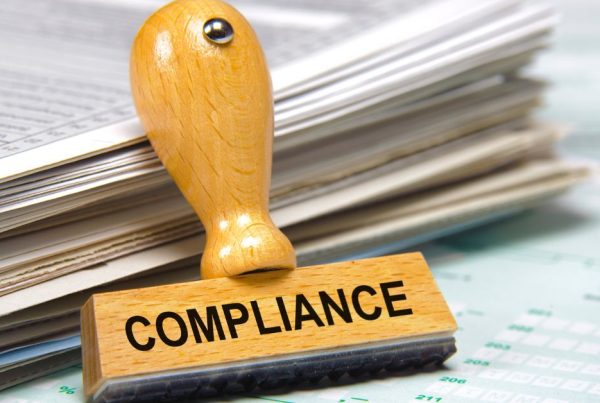
In the evolving landscape of remote work, consulting firms face unique challenges in managing dispersed teams effectively. Ensuring seamless collaboration, maintaining productivity, and engaging clients transparently are crucial elements for success. Implementing best practices in remote team management can significantly enhance these areas, providing consultancies with the tools and strategies needed to thrive. By leveraging advanced tools like Minute7 for time and expense tracking, consulting firms can streamline operations, foster a collaborative culture, and ensure client satisfaction, ultimately driving better project outcomes and business growth.
Effective Communication Strategies
Regular Check-ins and Meetings
Regular virtual meetings are essential for maintaining connection and ensuring alignment within remote teams. These meetings provide a platform for discussing progress, addressing concerns, and sharing ideas. It’s important to prepare a detailed agenda before the meeting and check your technology (internet, microphone, camera) to avoid glitches (source). Another best practice is to set general housekeeping rules, introduce new hires, and encourage people to turn their cameras on during virtual meetings (source).
Clear and Concise Communication
Clear and concise communication is vital in remote teams to avoid misunderstandings, build trust among team members, and ensure productivity. This communication can be fostered through concise messaging and regular check-ins. Using video conferencing tools can also build trust and foster a sense of community among team members (source). To promote open and effective lines of communication, you should define goals and expectations, deliver messages clearly, choose the appropriate medium for communication, keep everyone involved, and listen to your team members (source). Setting remote work expectations also requires being intentional about communication. You need to establish chosen communication channels and tools for the team, determine fixed meeting times, outline how to contact each other in case of an emergency, and decide how to share important updates (source).
Building a Collaborative Culture
Building a strong culture in a remote team requires defining, sharing, and updating your company culture, creating a psychologically safe space, providing high-quality virtual onboarding for new employees, and creating communication and collaboration standards. Also, it’s important to always show your employees how much you value and appreciate their contributions (source). A strong culture also involves investing in workplace culture and providing your remote team with communication and collaboration tools so they can do their work effectively (source).
Effective communication strategies are crucial for managing remote teams, particularly in the consulting industry. Regular check-ins and meetings, clear and concise communication, and building a collaborative culture are key practices that can enhance team collaboration, productivity, and engagement. Using a platform like Minute7 can facilitate these practices by providing a simple, accessible, and efficient way to track time and expenses, thereby contributing to smoother project execution and better client satisfaction.
Time Management and Productivity
Setting Clear Goals and Deadlines
Setting clear goals and deadlines is essential for remote teams to stay focused and aligned. Defining project milestones allows team members to understand their responsibilities and track their progress. Utilizing the SMART approach—Specific, Measurable, Achievable, Relevant, and Time-Bound—helps ensure that goals are clear and attainable (source). Breaking larger goals into smaller, manageable tasks can make projects less overwhelming and more achievable. Additionally, regular progress reviews and updates can help keep the team on track and address any potential roadblocks early.
Utilizing Time Tracking Tools
Time tracking tools are invaluable for remote teams, offering multiple benefits that enhance productivity and accountability. These tools allow team members to log their hours, making it easier to calculate payroll, bill clients accurately, and evaluate how time is being spent on various tasks (source). Minute7 stands out as an excellent solution for time and expense tracking. Its integration with QuickBooks, along with features like timesheets, expense tracking, and a mobile app, makes it highly effective for consultancy firms aiming to streamline their operations and improve accuracy in billing and reporting (source).
Managing Workloads and Avoiding Burnout
Effective workload management is crucial to maintaining productivity and preventing burnout among remote team members. Techniques such as setting clear expectations, delegating tasks appropriately, and maintaining open lines of communication can help balance workloads (source). Managers should also be vigilant in recognizing signs of burnout, such as chronic fatigue, reduced performance, and emotional exhaustion. Addressing these issues promptly through strategies like encouraging regular breaks, promoting a healthy work-life balance, and providing mental health support can foster a more resilient and motivated remote team (source).
In summary, effective time management and productivity practices are vital for the success of remote consultancy teams. By setting clear goals and deadlines, utilizing time tracking tools, and managing workloads to prevent burnout, consulting firms can enhance their remote operations. Minute7’s robust features provide the necessary tools to support these practices, leading to more efficient project management and higher client satisfaction.
Client Engagement and Transparency
Maintaining Regular Client Communication
Maintaining regular and effective communication with clients is essential for building trust, meeting expectations, and delivering high-quality service. Several strategies can help achieve this. Setting clear standards and expectations from the outset, creating a joint roadmap with clients, and personalizing engagement and messaging are crucial steps (Forbes). Additionally, leveraging modern communication methods such as email, phone technology, and text messaging can enhance communication channels with clients (Walden University).
Transparent Reporting and Billing
Transparent reporting and billing are critical aspects of client engagement. Offering transparency in consulting fees fosters trust, aligns expectations, and ensures fairness (Faster Capital). Transparent billing practices can further build customer trust by allowing clients to understand and anticipate all charges (Avalara). Minute7 plays a crucial role in facilitating transparent and accurate expense reporting. The platform seamlessly integrates with QuickBooks, allowing employees, vendors, and contractors to easily enter their time and expenses, ensuring transparent budgeting and accurate financial reporting (Minute7 Blog).
Leveraging Technology for Better Client Interaction
Technology is a vital component in enhancing client interaction, especially for remote teams. Collaboration tools such as Figma, Sketch, and Miro enable remote teams to work on shared documents, prototypes, and designs in real-time, promoting seamless and effective collaboration (Owl Labs). Additionally, remote communication tools such as Microsoft Teams, Google Meet, and Zoom can help simulate the social and collaborative aspects of a traditional office, enhancing team culture and productivity (New Era Technology).
In summary, regular client communication, transparent reporting and billing, and the effective use of technology are key practices in managing remote teams in consulting firms. Tools like Minute7 can significantly contribute to these practices by providing a platform for accurate time tracking and transparent expense reporting, promoting efficient remote project execution and client satisfaction.
Enhancing Remote Team Management in Consulting Firms
In the rapidly evolving landscape of remote work, consulting firms must adopt best practices to manage their dispersed teams effectively. By implementing robust communication strategies, optimizing time management, and ensuring transparent client engagement, consultancies can navigate the complexities of remote work with greater ease and efficiency.
Effective communication lies at the heart of successful remote team management. Regular check-ins and meetings, clear and concise communication, and fostering a collaborative culture are fundamental practices that enhance team cohesion and productivity. Utilizing a tool like Minute7 can further streamline communication by providing a unified platform for tracking time and expenses, ensuring that all team members are aligned and informed.
Time management and productivity are critical components of remote work. Setting clear goals and deadlines, using time tracking tools, and managing workloads to prevent burnout are essential strategies. Minute7’s features, such as timesheets, expense tracking, and seamless integration with QuickBooks, offer a comprehensive solution for consultancies to maintain efficiency and accuracy in their remote operations.
Client engagement and transparency are equally important in maintaining trust and delivering high-quality service. Regular communication, transparent reporting, and leveraging technology for better client interaction are key practices. Minute7 facilitates these processes by enabling detailed and transparent expense reporting, contributing to better client satisfaction and smoother project execution.
By embracing these best practices and leveraging advanced tools like Minute7, consulting firms can enhance their remote team management, leading to improved collaboration, productivity, and client engagement. Minute7’s robust platform supports these efforts, helping consultancies achieve their goals and thrive in the remote work environment.



